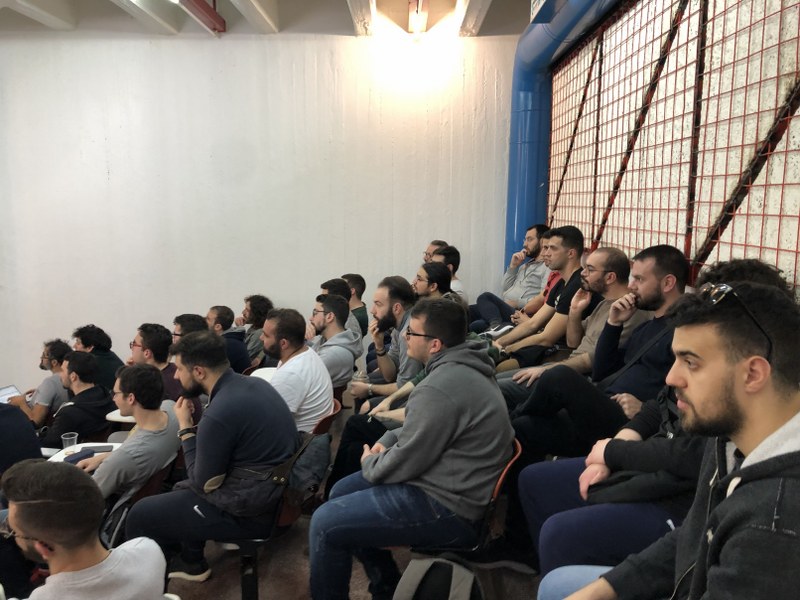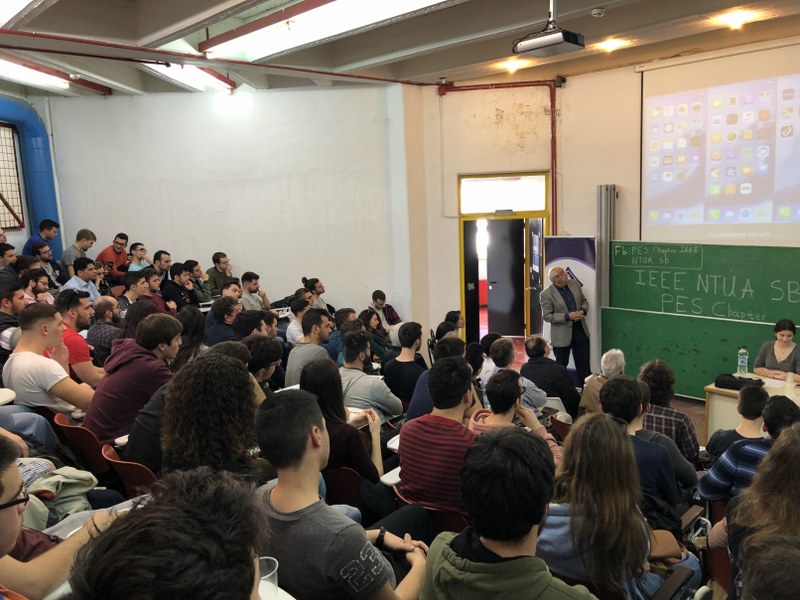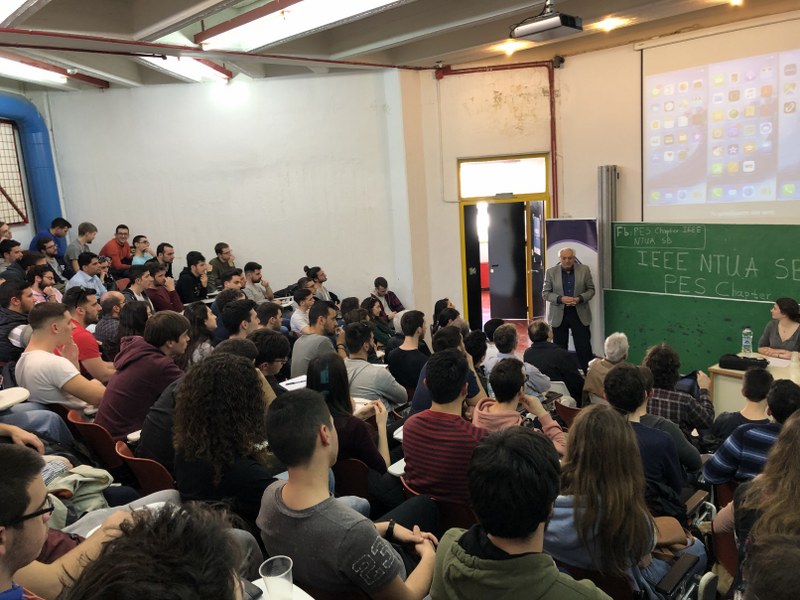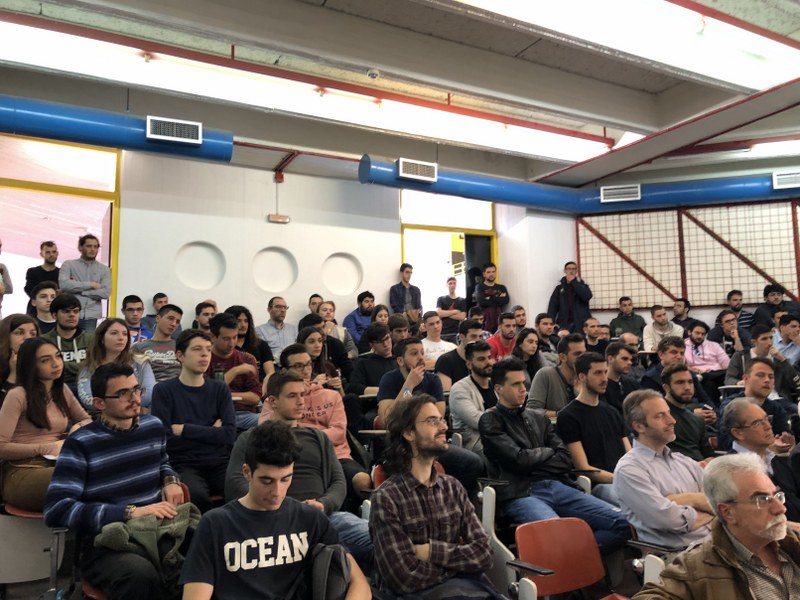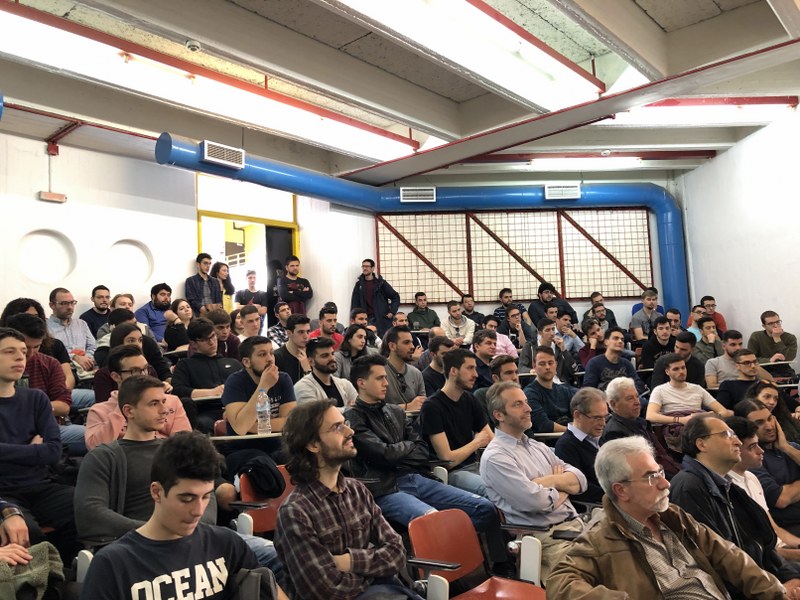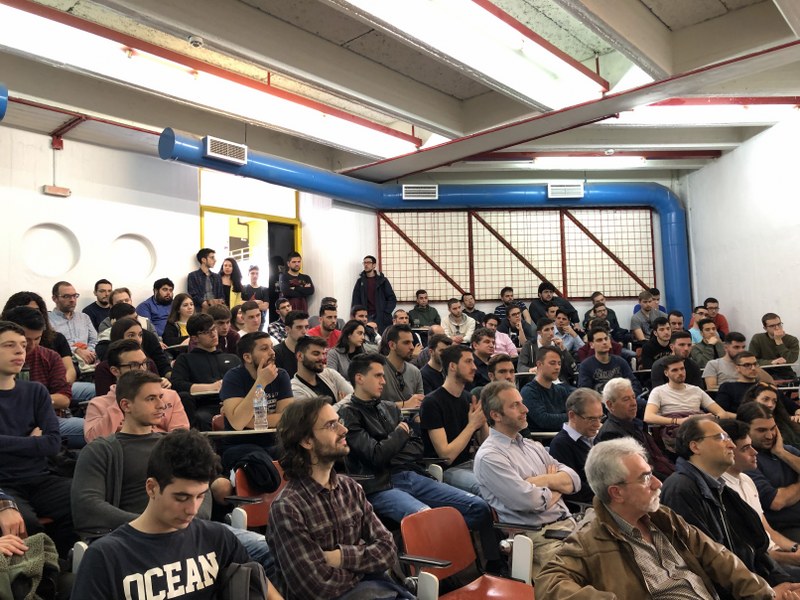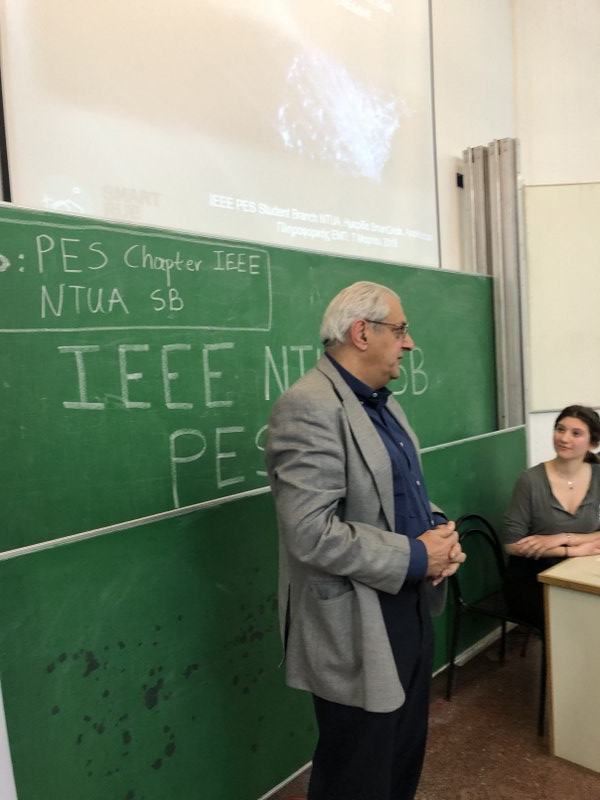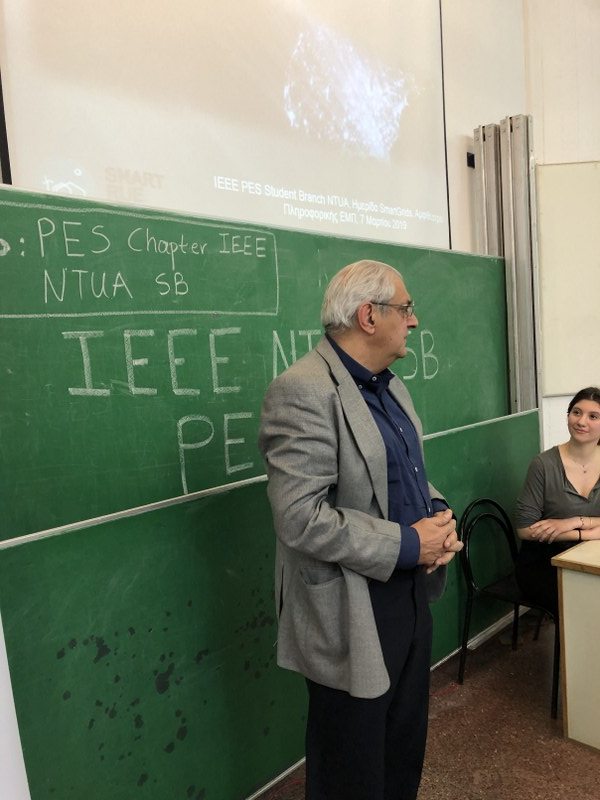ECE-NTUA hosted a successful workshop on SMARTGRIDS
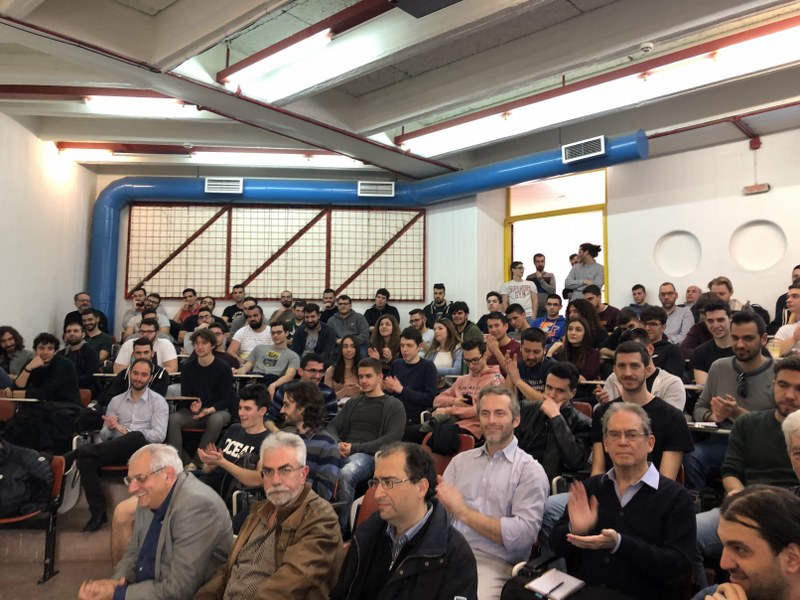
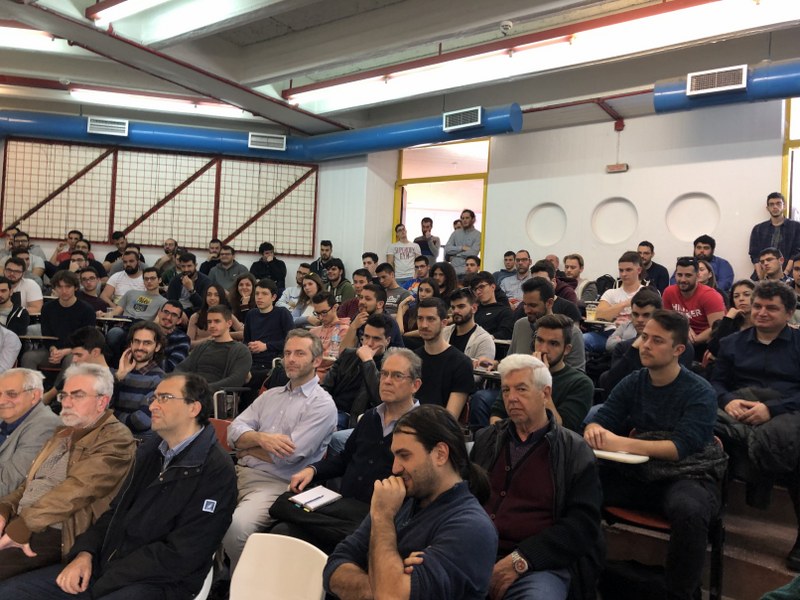
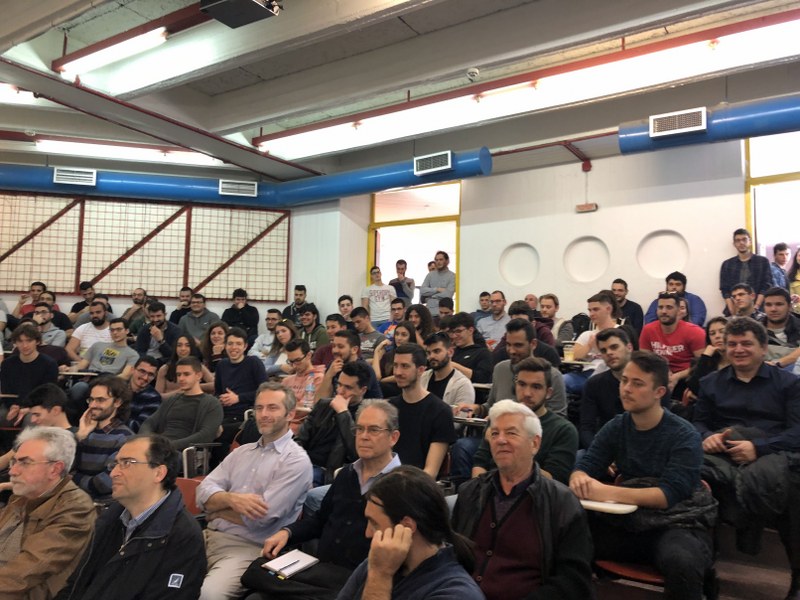
The School of ECE-NTUA hosted a workshop on SMARTGRIDS on March 7, 2019. The event organized by the IEEE NTUA Student Branch and the Power and Energy Society of IEEE NTUA SB in collaboration with the Smart Grids Research Unit (Smart RUE) of ECE-NTUA.
A power grid as smart as the internet:
Prof. Nikos Hatziargyriou presented the energy targets for Renewables, Green House Gas Emissions and Energy Efficiency set by the European Union for the years 2020, 2030 and 2050 and an overview of the 2050 Vision of the European Technology and Innovation Platform for Smart Networks for Energy Transition (ETIP SNET). This can be summarized as future systems with energy production from a variety of units, both centralized and decentralized, fully or largely circular, customers fully engaged and networks of electricity, gas, heat&cold, liquid fuels, etc. fully integrated via conversion technologies and all forms of storage. He underlined the challenges faced already by Distribution System Operators to operate their network efficiently and securely with high shares of distributed renewable sources, active customers, dispersed storage, electric vehicles, etc. He concluded that a high degree of network digitalization is required for efficient energy transition and that energy networks need to become as smart as the internet. He identified two main features that make the internet “smart”: sharing responsibility and distributed intelligence via standard protocols and well defined interfaces. He claimed that energy networks are progressively becoming smarter, characterized by hierarchical distributed intelligence, energy management autonomy and shared responsibilityfor security, as seen in the new paradigms of Microgrids, Local Energy Communities, Smart Cities, Zero Energy Buildings, Local Markets, Peer to Peer Platforms, Blockchain applications, etc. He predicted that this trend will continue in the future, but then he challenged our ability to predict the future listing famous historical prediction failures.
Distributed renewable energy sources everywhere:
Dr. Panos Kotsampopoulos highlighted the importance of the energy transition and especially the integration of Renewable Energy Sources (RES) to tackle climate change. He presented a number of technical challenges associated with the wide integration of RES, such as voltage rise issues, reduced inertia, congestions, over-generation etc. In this framework selected activities of Smart RUE were presented, such as the use of Hardware-in-the-Loop simulation for the analysis of such problems. Finally, social aspects related to RES were considered, such as the benefits of a distributed model, the importance of collaboration with local communities and respect for the environment.
From hardware to smartware:
Dr. Ioannis Vlachos presented an overview of the new trends that are emerging within the energy utility corporate and operational environment. A key term to the transition of the utilities into the new digital era is the so-called "Digital Transformation" that merges the worlds of Operational Technology (OT) and the Information Technology (IT) using the appropriate Information and Communications Technology (ICT) tools. This digital transformation is deemed necessary in order for the utility of tomorrow to address the new challenges summarized with the 4Ds: Decentralization, Digitalization, Decarbonization, and Democratization. Among the emerging trends presented were the Industrial Internet of Things (IIoT) concept and the Distributed Ledger Technologies (DLTs).
Energy democracy and decentralization:
Dr. Iasonas Kouveliotis-Lysikatos presented the idea of energy democracy and discussed the concept of decentralizing the energy production as a means to achieve it. In this context, a recent Greek law was presented that enables the formation and operation of Energy Communities (i.e. cooperatives involved in the energy sector), that can help efficiently increase the awareness and active involvement of the end-user, promote energy efficiency and cope with energy poverty. At the last part of the presentation, several difficulties from a technical point of view were presented, that should be addressed in parallel with the decentralization of energy production, along with the emerging technologies that can help cope with these issues, such as bioinspired distributed optimization models, blockchain, etc.
Who is afraid of electric mobility?
Dr. Evangelos Karfopoulos presented the trends towards transport electrification and an overview on the current technological advancement on automotive industry and charging infrastructure. E-mobility concept is a reality worldwide nowadays and the announced ambitious e-mobility share targets at EU and national level proves the dynamic trend towards green and sustainable transport sector. This transition raises new challenges and opportunities not only for existing stakeholders but also for new market players. The new business opportunities for industry and energy stakeholders requires a coherent e-mobility regulatory framework. The integration of electric vehicles into electricity grids for serving their mobility energy needs may affect the way grids are planned, operated and managed and this should be taken into consideration by all system operators.
